Editorial Policies
Focus and Scope
Latin American Journal of Aquatic Research- LAJAR is the continuation of the journal Investigaciones Marinas (1970-2007) and is published since 2008 by the Escuela de Ciencias del Mar, Facultad de Ciencias del Mar y Geografía of the Pontificia Universidad Católica de Valparaíso. LAJAR is an “Open Access” journal that publishes in English language, original and unpublished research articles, reviews and short communications on aquatic science, which contain the results of research conducted in aquaculture or in oceanic and coastal marine waters of Latin America.
The following topics are considered: Physical Oceanography, Chemical Oceanography, Marine Biogeochemistry, Marine Pollution and Toxicology, Marine Geology and Geophysics, Biological Oceanography, Fisheries and Aquaculture.
Latin American Journal of Aquatic Research - LAJAR has a periodicity of five numbers a year, published in the months of March, May, July, September and November.
Section Policies
Review Articles
Research Articles
Short Communications
In Memoriam
Peer Review Process
General description: When a manuscript is submitted to Latin American Journal of Aquiatic Research, it is assessed to see if it meets the criteria for submission and Scope of the Journal. If it does, the editorial team will select potential peer reviewers within the field of research from our peer-reviewers database, or requests to our editors some researchers to peer-review the manuscript and obtain the proper recommendations.
The type of peer review used by Latin American Journal of Aquiatic Research is: Double Blind peer-review.
Open Access Policy
This journal provides immediate open access to its content on the principle that making research freely available to the public supports a greater global exchange of knowledge.



